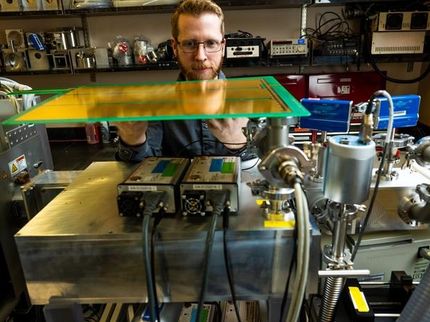Waters Collaborates with Dr. Sunghwan Kim of Kyungpook National University to Advance Precision Analysis of Complex Chemical Compounds
Waters Corporation has formally expanded its long-standing, collaborative relationship with Dr. Sunghwan Kim of Kyungpook National University to further explore the use of Waters’ cutting-edge ion mobility spectrometry (IMS) in the investigation of compounds in complex mixtures.

Symbolic image
pixabay.com
Identifying unknown chemicals in complex organic media at the molecular level has become an important but difficult research topic in modern analytical chemistry. For example, crude oils are immensely complex organic mixtures and have a high degree of variance at the chemical level. Characterization of the chemical complexity of oil is helpful not only to maximize profit, but to make petroleum products more efficient as well.
“We are thrilled to deliver the first Waters™ SELECT SERIES™ CYCLIC IMS™ in South Korea to Dr. Kim’s state-of-the-art laboratory at Kyungpook National University,” said David Curtin, Waters’ Vice President for APAC. “Together we will further explore difficult analytical challenges, such as oil analysis, while leveraging our collective expertise and revolutionary innovation.”
Characterization of oil’s chemical complexity prior to refining is difficult, but necessary to maximize the quality of petroleum products. Approximately 90 million barrels of oil are produced per day, representing more than $3 billion in daily value, so even marginal improvements to the chemical characterization process can have significant financial benefits for refineries.
Over the last 10 years, Dr. Kim has been working to develop an analytical scheme to identify chemicals in complex mixtures and believes that Waters’ CYCLIC IMS System can make a major contribution to resolve this difficult analytical problem.
“The CYCLIC IMS is an innovative instrument by which researchers can use their imagination to design and perform novel experiments that has not been possible with other existing instruments,” said Dr. Sunghwan Kim. “The novel information from this innovative instrument can provide a key to complete the buildout of our analytical scheme.”
While the performance of previous Ion Mobility ToF Mass Spectrometry techniques has been useful for structural characterization of crude oils, the approach has been limited by the ion mobility resolution of these devices. The unique design of the CYCLIC IMS utilizes a novel travelling wave ion mobility device arranged in a cyclic fashion, allowing a selectable level of IMS resolution by choosing the number of IMS cycles, and is delivering previously unattainable levels of gas phase separation.
Recently, Dr. Kim published a paper with Waters researchers on utilizing CYCLIC IMS to tackle both the complexity and isomer problems of crude oil characterization. In this study many of the chemical components differed by less than 0.1Da, and CYCLIC Ion Mobility allowed the detection and separation of these, as well as clean MSMS spectra for the individual components.
“The data obtained from utilizing Waters’ CYCLIC IMS clearly demonstrates that the novel CYCLIC ion mobility-mass spectrometer is a powerful instrument that can provide never-before-seen tandem mass spectra of individual compounds in crude oil,” said Dr. Kim. “Furthermore, it has the potential to reduce the need for long LC or GC separations prior to MS analysis, reducing overall analysis time and increasing throughput.”
In addition, as part of their collaboration, Dr. Kim and Waters will also work to characterize complex advanced materials used in high technology products, such as those found in electronics. In this fast-moving field of smart materials, the structural purity of these finely tailored molecules dictates the ultimate performance of the materials and even subtle changes in organization of side chains, functional units or macro-molecular assemblies can lead to batch-level failures, or even potentially dangerous products. The use of CYCLIC IMS in process development will allow detection of erroneous molecules that could not be seen before.
See the theme worlds for related content
Topic World Mass Spectrometry
Mass spectrometry enables us to detect and identify molecules and reveal their structure. Whether in chemistry, biochemistry or forensics - mass spectrometry opens up unexpected insights into the composition of our world. Immerse yourself in the fascinating world of mass spectrometry!

Topic World Mass Spectrometry
Mass spectrometry enables us to detect and identify molecules and reveal their structure. Whether in chemistry, biochemistry or forensics - mass spectrometry opens up unexpected insights into the composition of our world. Immerse yourself in the fascinating world of mass spectrometry!


























































